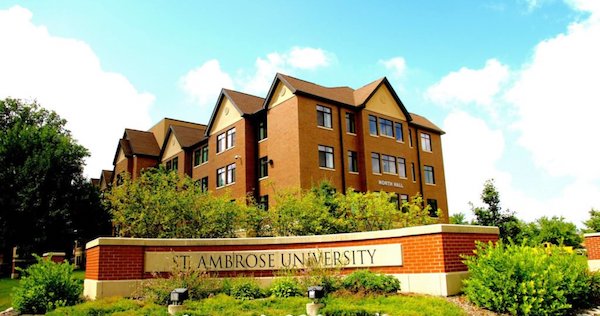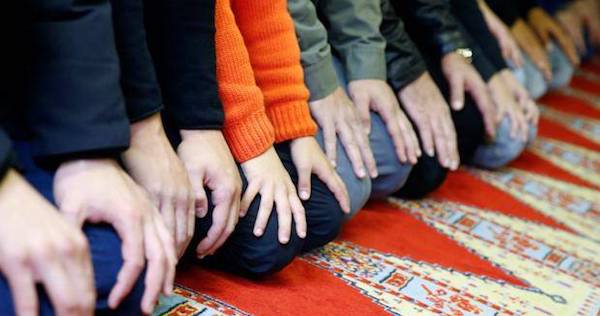
According to ijr.com:
On Tuesday, St. Ambrose University in Davenport opened a new area for students who are Muslim in search of a place to pray, NPR reported.
Matt Mahoney, a senior at St. Ambrose, worked with the university’s Saudi Student Association to design a space specifically for his Muslim peers. The prayer space includes sinks for religious foot-washing rituals and separate sections for men and women, given the Islamic faith’s call for different spaces for each sex.
Why now?
Mahoney told NPR the school decided to install the Islamic prayer space one year after the death of Joe DeFrancisco, a former religion and theology professor who taught at St. Ambrose for 25 years.
The student noted there were people “from six different faiths” represented at DeFrancisco’s funeral. Mahoney said he wants to ensure the professor’s legacy of interfaith education continues to flourish on the Davenport campus.
“One of his ideas was our Muslim students particularly, but just students of all faiths, didn’t really have a substantial enough prayer rooms on campus,” Mahoney explained.
Why at all?
It certainly is unique, as stated in the lede of this story, for a Catholic institution to go out of its way to make special accommodations for those who adhere to the Islamic faith — a theology greatly at odds with the school’s stated belief system.
But according to Mahoney, St. Ambrose has a history of religious tolerance and, apparently, acceptance.
“Being able to say that we’re committed to these Muslim students, and to all students — students of all different faiths — is really outstanding,” he said. “It’s uniquely Ambrosian, and it just sort of shows our commitment to all different faiths.”As “outstanding” as Mahoney might think the school’s decision is, it certainly flies in the face of the university’s apparent mission — bolstering the Catholic faith. While it’s entirely appropriate for a religious institution to advocate for tolerance and just treatment for everyone, regardless of their religion, installing a space specifically for Islamic prayer seems to be a step away from pluralism and toward endorsement.
But in today’s fragmented culture, those words seem increasingly synonymous.”

